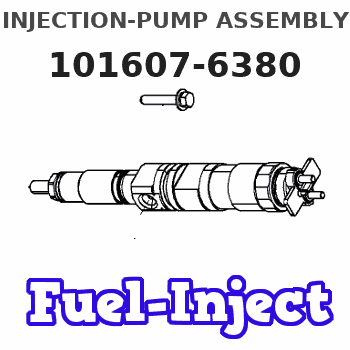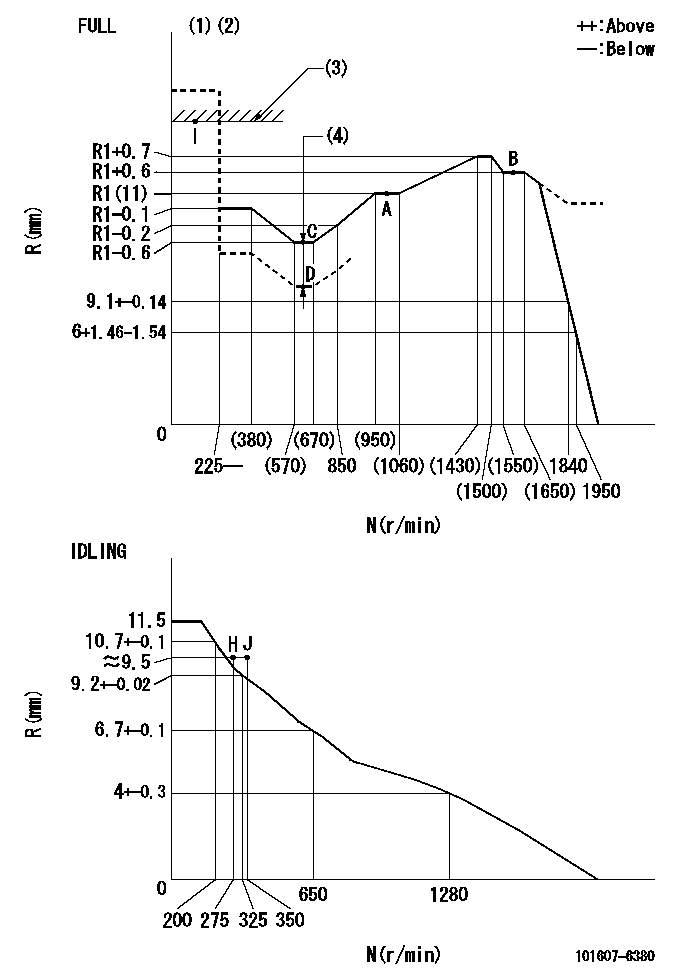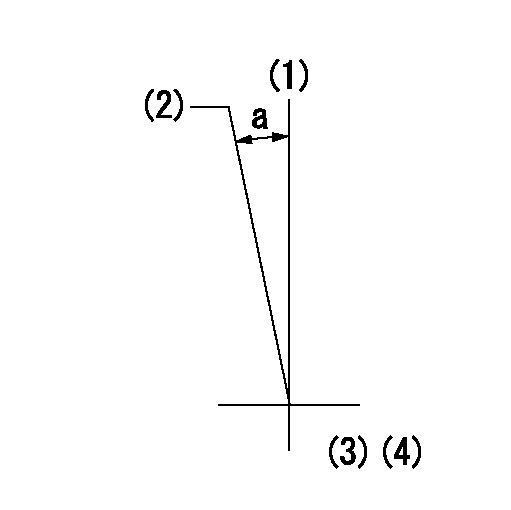Information injection-pump assembly
BOSCH
F 019 Z10 390
f019z10390
ZEXEL
101607-6380
1016076380

Rating:
Service parts 101607-6380 INJECTION-PUMP ASSEMBLY:
1.
_
6.
COUPLING PLATE
7.
COUPLING PLATE
8.
_
9.
_
11.
Nozzle and Holder
ME086584
12.
Open Pre:MPa(Kqf/cm2)
21.6(220)
15.
NOZZLE SET
Include in #1:
101607-6380
as INJECTION-PUMP ASSEMBLY
Include in #2:
104746-6971
as _
Cross reference number
BOSCH
F 019 Z10 390
f019z10390
ZEXEL
101607-6380
1016076380
Zexel num
Bosch num
Firm num
Name
Calibration Data:
Adjustment conditions
Test oil
1404 Test oil ISO4113 or {SAEJ967d}
1404 Test oil ISO4113 or {SAEJ967d}
Test oil temperature
degC
40
40
45
Nozzle and nozzle holder
105780-8140
Bosch type code
EF8511/9A
Nozzle
105780-0000
Bosch type code
DN12SD12T
Nozzle holder
105780-2080
Bosch type code
EF8511/9
Opening pressure
MPa
17.2
Opening pressure
kgf/cm2
175
Injection pipe
Outer diameter - inner diameter - length (mm) mm 6-2-600
Outer diameter - inner diameter - length (mm) mm 6-2-600
Overflow valve
131424-6220
Overflow valve opening pressure
kPa
255
221
289
Overflow valve opening pressure
kgf/cm2
2.6
2.25
2.95
Tester oil delivery pressure
kPa
157
157
157
Tester oil delivery pressure
kgf/cm2
1.6
1.6
1.6
Direction of rotation (viewed from drive side)
Right R
Right R
Injection timing adjustment
Direction of rotation (viewed from drive side)
Right R
Right R
Injection order
1-5-3-6-
2-4
Pre-stroke
mm
3.3
3.25
3.35
Beginning of injection position
Drive side NO.1
Drive side NO.1
Difference between angles 1
Cal 1-5 deg. 60 59.5 60.5
Cal 1-5 deg. 60 59.5 60.5
Difference between angles 2
Cal 1-3 deg. 120 119.5 120.5
Cal 1-3 deg. 120 119.5 120.5
Difference between angles 3
Cal 1-6 deg. 180 179.5 180.5
Cal 1-6 deg. 180 179.5 180.5
Difference between angles 4
Cyl.1-2 deg. 240 239.5 240.5
Cyl.1-2 deg. 240 239.5 240.5
Difference between angles 5
Cal 1-4 deg. 300 299.5 300.5
Cal 1-4 deg. 300 299.5 300.5
Injection quantity adjustment
Adjusting point
-
Rack position
11
Pump speed
r/min
1000
1000
1000
Average injection quantity
mm3/st.
51.5
49.9
53.1
Max. variation between cylinders
%
0
-2.5
2.5
Basic
*
Fixing the rack
*
Standard for adjustment of the maximum variation between cylinders
*
Injection quantity adjustment_02
Adjusting point
H
Rack position
9.5+-0.5
Pump speed
r/min
275
275
275
Average injection quantity
mm3/st.
12.2
10.9
13.5
Max. variation between cylinders
%
0
-10
10
Fixing the rack
*
Standard for adjustment of the maximum variation between cylinders
*
Injection quantity adjustment_03
Adjusting point
A
Rack position
R1(11)
Pump speed
r/min
1000
1000
1000
Average injection quantity
mm3/st.
51.5
50.5
52.5
Basic
*
Fixing the lever
*
Boost pressure
kPa
40
40
Boost pressure
mmHg
300
300
Injection quantity adjustment_04
Adjusting point
B
Rack position
R1+0.6
Pump speed
r/min
1600
1600
1600
Average injection quantity
mm3/st.
57.5
53.5
61.5
Fixing the lever
*
Boost pressure
kPa
40
40
Boost pressure
mmHg
300
300
Injection quantity adjustment_05
Adjusting point
C
Rack position
R2(R1-0.
6)
Pump speed
r/min
640
640
640
Average injection quantity
mm3/st.
37.5
33.5
41.5
Fixing the lever
*
Boost pressure
kPa
40
40
Boost pressure
mmHg
300
300
Injection quantity adjustment_06
Adjusting point
I
Rack position
-
Pump speed
r/min
100
100
100
Average injection quantity
mm3/st.
73
73
78
Fixing the lever
*
Boost pressure
kPa
0
0
0
Boost pressure
mmHg
0
0
0
Rack limit
*
Boost compensator adjustment
Pump speed
r/min
640
640
640
Rack position
R2-0.4
Boost pressure
kPa
20
18.7
21.3
Boost pressure
mmHg
150
140
160
Boost compensator adjustment_02
Pump speed
r/min
640
640
640
Rack position
R2(R1-0.
6)
Boost pressure
kPa
26.7
26.7
26.7
Boost pressure
mmHg
200
200
200
Timer adjustment
Pump speed
r/min
1550--
Advance angle
deg.
0
0
0
Remarks
Start
Start
Timer adjustment_02
Pump speed
r/min
1500+50
Advance angle
deg.
0.3
Timer adjustment_03
Pump speed
r/min
1600
Advance angle
deg.
1
0.5
1.5
Remarks
Finish
Finish
Test data Ex:
Governor adjustment

N:Pump speed
R:Rack position (mm)
(1)Torque cam stamping: T1
(2)Tolerance for racks not indicated: +-0.05mm.
(3)RACK LIMIT
(4)Boost compensator stroke: BCL
----------
T1=J15 BCL=0.4+-0.1mm
----------
----------
T1=J15 BCL=0.4+-0.1mm
----------
Speed control lever angle

F:Full speed
I:Idle
(1)Use the hole at R = aa
(2)Stopper bolt set position 'H'
----------
aa=40mm
----------
a=26deg+-5deg b=(40.5deg)+-3deg
----------
aa=40mm
----------
a=26deg+-5deg b=(40.5deg)+-3deg
Stop lever angle

N:Pump normal
S:Stop the pump.
(1)Free (at delivery)
(2)Use the hole at R = aa
(3)Rack position corresponding to bb
(4)Set the stopper bolt at speed = cc and rack position = dd (non-injection rack position). Confirm non-injection.
(5)After setting the stopper bolt, confirm non-injection at speed ee. Rack position = ff or less (non-injection rack position).
----------
aa=40mm bb=16mm cc=1600r/min dd=6.5-0.5mm ee=275r/min ff=(8)mm
----------
a=8deg+-5deg b=15deg+-5deg c=25deg+-5deg
----------
aa=40mm bb=16mm cc=1600r/min dd=6.5-0.5mm ee=275r/min ff=(8)mm
----------
a=8deg+-5deg b=15deg+-5deg c=25deg+-5deg
Timing setting

(1)Pump vertical direction
(2)Position of timer's tooth at No 1 cylinder's beginning of injection
(3)B.T.D.C.: aa
(4)-
----------
aa=10deg
----------
a=(1deg)
----------
aa=10deg
----------
a=(1deg)
Information:
Preferred Fuel Grades
The two main types of diesel fuel that are available for your truck engine are typically low sulfur No. 1 diesel fuel and low sulfur No. 2 diesel fuel. Although No. 2 diesel fuels are the most commonly used fuel, No. 1 diesel fuels or a blend of No. 1 diesel fuel and No. 2 diesel fuel is best suited for cold weather operation.There are three major differences between No. 1 diesel fuel and No. 2 diesel fuel.
No. 1 diesel fuel has a lower cloud point. The fuel cloud point is the temperature when a haze appears in the fuel. When the temperature falls below the melting point of the paraffins a haze results. Paraffins are a wax that naturally occurs in petroleum products. The wax can alter the fuel characteristics in cold weather. Solid wax can fill the fuel filters. The solidified wax will stop the flow of fuel. The cloud point must not exceed the lowest expected ambient temperature or other precautions must be taken. Installing a fuel heater is the most practical way to address problems with the cloud point.
No. 1 diesel fuel has a lower pour point. The pour point of the fuel is the temperature that is 3 °C (5 °F) above the temperature that is required for fuel to flow. Fuel stops flowing below the pour point. A fuel's pour point should be at least 6°C (10°F) below the lowest ambient temperature that is required for engine start-up and for engine operation.
No. 1 diesel fuel has a lower rating for kJ or Btu per unit volume of fuel than the average No. 2 diesel fuel.
Table 1
Fuel Recommendations for Ambient Temperatures
Fuel Type Temperature Range(1)
No. 2 Above 0 °C (32 °F)
No. 1 −30 °C (−22 °F) to 0 °C (32 °F)
(1) Contact your Caterpillar dealer for information regarding the acceptable fuels and/or the acceptable blends, if there is potential for colder operating temperatures.No. 2 diesel fuel may be blended with No. 1 diesel fuel or blended with kerosene in the following proportions in order to achieve the capability to flow at lower temperatures.
Table 2
Modification of No. 2 Fuel
Ambient Temperature No. 2 Diesel Fuel (%)(1) No. 1 Diesel Fuel(1)
Above −10 °C (14 °F) 90 10
−10 °C (14 °F) to −20 °C (−4 °F) 70 30
Temperatures below −20 °C (−4 °F) 50 50
(1) Never blend the fuel with gasoline under any circumstances.No. 1 diesel fuel does not have the same energy per unit volume as No. 2 diesel fuel. No. 1 diesel fuel has less energy per unit volume. A reduction in power and fuel efficiency may be noticed with No. 1 diesel fuel or a blend of No. 1 diesel fuel and No. 2 diesel fuel but other operating effects should not be experienced.Check the type of fuel or the fuel blend that is being used before troubleshooting for poor performance during the winter. Be aware of these values when you purchase diesel fuel. Anticipate the average outside temperature for the area for operation
The two main types of diesel fuel that are available for your truck engine are typically low sulfur No. 1 diesel fuel and low sulfur No. 2 diesel fuel. Although No. 2 diesel fuels are the most commonly used fuel, No. 1 diesel fuels or a blend of No. 1 diesel fuel and No. 2 diesel fuel is best suited for cold weather operation.There are three major differences between No. 1 diesel fuel and No. 2 diesel fuel.
No. 1 diesel fuel has a lower cloud point. The fuel cloud point is the temperature when a haze appears in the fuel. When the temperature falls below the melting point of the paraffins a haze results. Paraffins are a wax that naturally occurs in petroleum products. The wax can alter the fuel characteristics in cold weather. Solid wax can fill the fuel filters. The solidified wax will stop the flow of fuel. The cloud point must not exceed the lowest expected ambient temperature or other precautions must be taken. Installing a fuel heater is the most practical way to address problems with the cloud point.
No. 1 diesel fuel has a lower pour point. The pour point of the fuel is the temperature that is 3 °C (5 °F) above the temperature that is required for fuel to flow. Fuel stops flowing below the pour point. A fuel's pour point should be at least 6°C (10°F) below the lowest ambient temperature that is required for engine start-up and for engine operation.
No. 1 diesel fuel has a lower rating for kJ or Btu per unit volume of fuel than the average No. 2 diesel fuel.
Table 1
Fuel Recommendations for Ambient Temperatures
Fuel Type Temperature Range(1)
No. 2 Above 0 °C (32 °F)
No. 1 −30 °C (−22 °F) to 0 °C (32 °F)
(1) Contact your Caterpillar dealer for information regarding the acceptable fuels and/or the acceptable blends, if there is potential for colder operating temperatures.No. 2 diesel fuel may be blended with No. 1 diesel fuel or blended with kerosene in the following proportions in order to achieve the capability to flow at lower temperatures.
Table 2
Modification of No. 2 Fuel
Ambient Temperature No. 2 Diesel Fuel (%)(1) No. 1 Diesel Fuel(1)
Above −10 °C (14 °F) 90 10
−10 °C (14 °F) to −20 °C (−4 °F) 70 30
Temperatures below −20 °C (−4 °F) 50 50
(1) Never blend the fuel with gasoline under any circumstances.No. 1 diesel fuel does not have the same energy per unit volume as No. 2 diesel fuel. No. 1 diesel fuel has less energy per unit volume. A reduction in power and fuel efficiency may be noticed with No. 1 diesel fuel or a blend of No. 1 diesel fuel and No. 2 diesel fuel but other operating effects should not be experienced.Check the type of fuel or the fuel blend that is being used before troubleshooting for poor performance during the winter. Be aware of these values when you purchase diesel fuel. Anticipate the average outside temperature for the area for operation